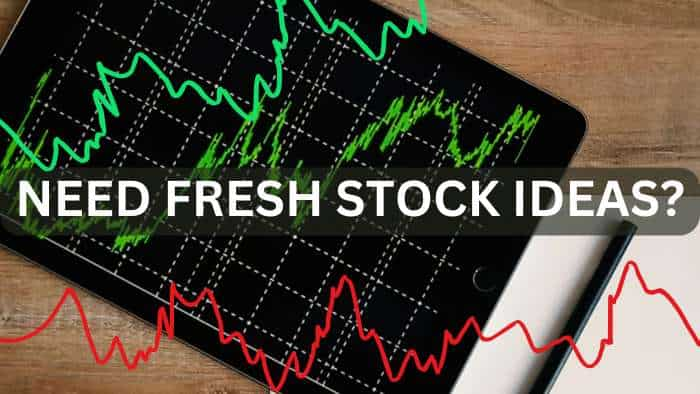What is Exchange Traded Funds? Know how it benefits investors
Exchange Traded Funds or ETFs are baskets of securities (Indices) that are traded, like individual stocks, on an exchange, as per the information provided by the National Stock Exchange (NSE).

f you are thinking or planning of investing or trading in stock market then you need to know lot of technicalities and terms used in it in order to avail full advantage. Traders or investors who want to trade in Exchange Traded Funds or ETF then here is what they need to know.
What is Exchange Traded Fund (ETF)?
Exchange Traded Funds or ETFs are baskets of securities (Indices) that are traded, like individual stocks, on an exchange, as per the information provided by the National Stock Exchange (NSE).
See Zee Business Live TV Streaming Below:
Unlike regular open-end mutual funds, ETFs can be bought and sold throughout the trading day like any stock. ETFs have lower cost of transactions and annual changes compared to index funds.
It can be noted that ETFs are considered a safer product for risk averse and first-time investors who want market linked returns, as per NSE.
Advantages of ETFs
Due to the unique structure of ETFs, all types of investors, whether retail or institutional, long-term or short-term, can use it to their advantage. They allow long-term investors to diversify their portfolio at one shot at low cost and insulate them from short-term trading activity due to the unique "in-kind" creation/redemption process.
As initial investment is low, retail investors find it simple and convenient to buy/sell. They facilitate FIIs, Institutions and Mutual Funds to have easy asset allocation, hedging, equitising cash at a low cost. They enable arbitrageurs to carry out arbitrage between the Cash and the Futures markets at low impact cost.
While redemptions of Index fund units takes place at a fixed NAV price (usually end of day), ETFs offer the convenience of intra-day purchase and sale on the Exchange, to take advantage of the prevailing price, which is close to the actual NAV of the scheme at any point in time.
They provide investors a fund that closely tracks the performance of an index throughout the day with the ability to buy/sell at any time, whereby trading opportunities that arise during a day may be better utilized.
Since an ETF is listed on an Exchange, costs of distribution are much lower and the reach is wider. These savings in cost are passed on to the investors in the form of lower costs. Further, the structure helps reduce collection, disbursement and other processing charges.
ETFs protect long-term investors from inflows and outflows of short-term investors. This is because the fund does not incur extra transaction cost for buying/selling the index shares due to frequent subscriptions and redemptions.
ETFs are highly flexible and can be used as a tool for gaining instant exposure to the equity markets, equitising cash or for arbitraging between the cash and futures market.
Get Latest Business News, Stock Market Updates and Videos; Check your tax outgo through Income Tax Calculator and save money through our Personal Finance coverage. Check Business Breaking News Live on Zee Business Twitter and Facebook. Subscribe on YouTube.
RECOMMENDED STORIES

IPL Auction 2025 Free Live Streaming: When and where to watch Indian Premier League 2025 mega auction live online, on TV, Mobile Apps, and Laptop?

SIP vs PPF: How much corpus you can build in 15 years by investing Rs 1.5 lakh per year? Understand through calculations

SBI Senior Citizen Latest FD Rates: What senior citizens can get on Rs 7 lakh, Rs 14 lakh, and Rs 21 lakh investments in Amrit Vrishti, 1-, 3-, and 5-year fixed deposits
04:37 PM IST








 Gold’s rollercoaster ride: Key factors driving the ongoing price volatility
Gold’s rollercoaster ride: Key factors driving the ongoing price volatility Invest in gold ETFs on Dhanteras for purchasing gold jewellery later: Experts
Invest in gold ETFs on Dhanteras for purchasing gold jewellery later: Experts Silver ETFs getting investors' traction; asset bases reach Rs 1,800 crore
Silver ETFs getting investors' traction; asset bases reach Rs 1,800 crore Axis Mutual Fund aims to raise Rs 50 crore from new ETF fund of funds
Axis Mutual Fund aims to raise Rs 50 crore from new ETF fund of funds What is Exchange Traded Fund? Experts decode meaning, advantages and disadvantages of ETF
What is Exchange Traded Fund? Experts decode meaning, advantages and disadvantages of ETF